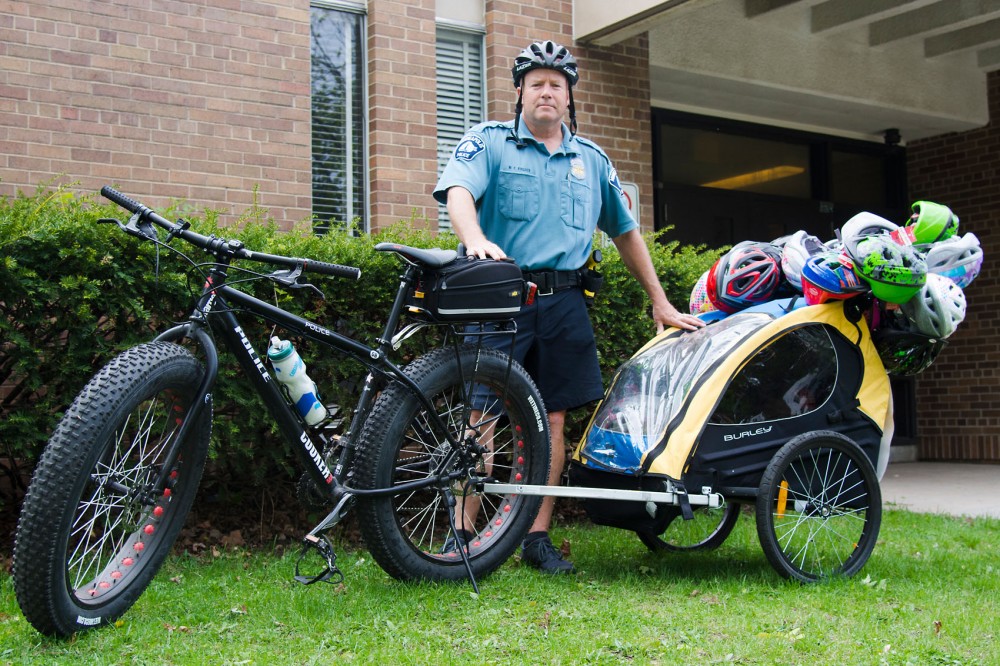A Minneapolis police officer is getting kids on bicycles while mending relationships between law enforcement officials and communities.
Officer Mike Kirchen and other officers ride bikes throughout city neighborhoods, like Cedar-Riverside, to build residents’ trust with law enforcement officials. The effort, “Bike Cops for Kids,” is centered on the act of giving free bikes to kids in need.
“We seek out the kids who may need attention the most,” he said. “If a kid has to witness something that they should never witness, we’ll get that kid a bike.”
Cedar-Riverside resident Mubashir Jeilani, 19, said he remembers a time when there was tension between police and area residents. But with more Somali officers and the bike cops, the neighborhood interacts with police officers differently.
“Both parents and kids love the bike patrol officers because they’re so approachable,” Jeilani said. “People don’t feel intimated by those officers, and it’s helped build relationships with police in the community.”
Jeilani said he aspires to be a police officer, and Kirchen approached him to talk about a career in law enforcement at a protest in March. Although Jeilani hadn’t met Kirchen before that talk, he said he knew exactly who the officer was.
Whenever Kirchen comes through the area, Jeilani said, the officer waves and says hello to everyone he passes.
“Not everyone speaks the same language, but everyone understands a smile, a wave and ‘good morning,’” Kirchen said as he smiled and waved at passersby on Cedar Avenue.
Before the program started, Kirchen worked as a school police officer. But the 24-year police veteran said he wanted to patrol on bikes instead of in squad cars, so he started getting the program off the ground in 2009 with the help of his fellow officer and friend, Mark Klukow.
The program started in north Minneapolis, but it has since expanded to south Minneapolis neighborhoods.
Now, any officer can give a bicycle to a child thanks to donations and grants from partner organizations that help keep the program financially afloat.
“We wanted to connect with kids on a spontaneous level,” Klukow said. “The icebreaker was to give kids free helmets, so people knew we weren’t there to interrupt their lives.”
In recent years, the program has given out about 14,000 helmets and 70 bikes annually.
Klukow said the program has been a success because of Kirchen’s ability to connect with people either face-to-face or via social media.
Kirchen spends time at parks and schools to get to know kids. Earlier this week, he was at Bethune Community School in Minneapolis teaching kids about bike safety.
Physical education teacher Kyle Hansen said Kirchen comes by the school often.
“He connects with the whole community. When he comes up, all the kids run up to him. They want to take photos with him and get to know him,” Hansen said.
Kirchen said he tries to show residents that police officers can be compassionate.
“People will form opinions about the police,” Kirchen said. “But when we ride over on our bikes and show them that cops can be good, we’re able to connect with both kids and adults.”








